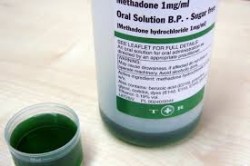5 Tips for Success in Methadone Maintenance Treatment

Methadone can help you overcome opiate addiction safely and effectively, when taken correctly.
Most long-term opiate addicts find it all but impossible to stop using without some form of drug treatment help. Drugs like heroin, Oxycontin and codeine incapacitate a person’s normal brain functions to the point where the drug becomes the center of his or her world.
Methadone maintenance treatment offers opiate addicts a way out of the vicious cycle that addiction becomes. Addicts who’ve made multiple attempts at quitting and failed were likely overwhelmed by persistent drug cravings and withdrawal effects. Methadone’s effects in the brain coupled with ongoing psychosocial treatment enable addicts to overcome the damaging effects of opiate addiction in their lives.
Here are five tips for a successful recovery in methadone maintenance treatment –
1. Follow the Prescription to the Letter
According to the Substance Abuse & Mental Health Services Administration, daily doses of methadone work to counteract opiate withdrawal effects and lessen the degree of cravings experienced. Daily dosage amounts are based on the information a person gives to the physician in charge of his or her case.
The proper dosage amount is just enough to keep cravings and withdrawal effects in check without producing a “high” effect. People who take more than their prescribed dosage place themselves at risk of methadone addiction and essentially cancel out the therapeutic benefits of the drug.
2. Beware of Medication Interactions
As a synthetic opiate medication, the body metabolizes methadone at a slower rate than other addictive opiate drugs. Methadone’s slow, long-acting effects account for the daily dosing schedule guideline.
For these reasons, it’s important that anyone just starting out in methadone maintenance treatment
inform their doctor of any other medications they’re taking. Drugs known to interact with methadone include –
- Alcohol
- Other opiate drugs
- Antihistamines
- Tranquilizers
- Antibiotics
- Heart medications
Any one of these substances can impair methadone’s effectiveness and place recovering addicts at unnecessary risk of relapse, or even overdose.
3. Make the Most of Behavioral Treatment
While methadone plays an essential role in the treatment process, it’s equally important that recovering addicts fully participate in behavioral treatment work. Behavioral treatment includes –
- Individual psychotherapy
- 12-Step support group sessions
- Group therapy
Behavioral treatment deals with the psychological aspect of addiction, which drives addicts to believe they need the drug to cope with everyday life. By making the most of behavioral treatment, recovering addicts greatly increase the likelihood of a successful recovery.
4. Treatment Duration
While other drug treatment programs may run anywhere from 30 days to six months in duration, a person can continue in methadone maintenance treatment for as long as needed. According to the National Institute of Justice, people who remain in methadone maintenance treatment for 12 months or longer have the best chance of remaining drug-free on a long-term basis.
5. Follow a Tapering Schedule
Once withdrawal effects and drug cravings no longer threaten a person’s recovery progress, it’s time to discontinue methadone maintenance treatment. Rather than stopping treatment altogether, addicts must follow a tapering schedule to guard against the risk of falling back into old drug using behaviors.
Keeping in close contact with your physician during the tapering stage can help ensure a safe and smooth tapering process.